Nigeria, with its rich mosaic of cultures, offers a vibrant spectrum of indigenous philosophies and spiritual practices, intricately woven into the fabric of its various ethnic communities. This essay delves into the spiritual and philosophical cultures of four prominent Nigerian groups: the Igbo, Mama, Yoruba, and Ogoni peoples. By examining their artistic expressions and cultural practices, we can gain insights into their unique worldviews and the ways in which these are manifested in their daily lives.
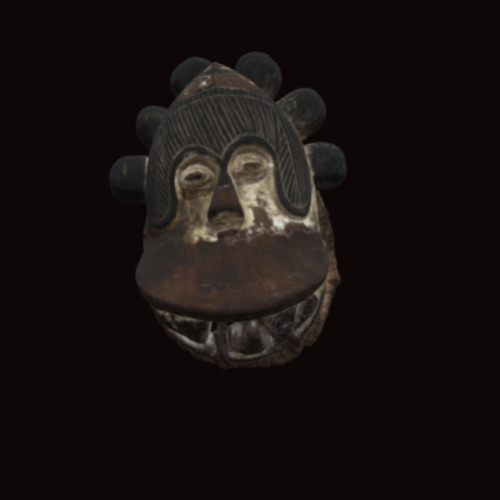
Igbo People Ceremonial Dance Mask (Nigeria) – Steinman Collection
Igbo: Axiology and Artistic Expression
The Igbo people, residing predominantly in southeastern Nigeria, possess a deeply philosophical and spiritual culture characterized by a complex belief system and rich artistic traditions. Central to Igbo philosophy is the concept of ‘Chi’, a personal spiritual guardian that influences one’s destiny, reflecting a profound connection between individual existence and cosmic forces. This relationship is often explored in Igbo art, particularly in the ‘Ikenga’ figures, which symbolize personal achievement and spiritual growth. These wooden sculptures, often adorned with symbols of strength and success, such as horns, encapsulate the Igbo’s emphasis on personal diligence and spiritual guidance.
Igbo society is also known for its ‘Mbari’ art—a celebratory, yet sacred art form created as a tribute to the earth goddess, Ala, who plays a pivotal role in Igbo cosmology. Mbari houses are filled with colorful sculptures and reliefs depicting everyday life, gods, and spirits, serving both as a visual feast and a spiritual offering to invoke blessings for community prosperity.
Masks in Igbo culture play crucial roles in rituals and ceremonies. The ‘Mmanwu’ festival and the ‘Ijele’ masquerade are particularly significant, featuring elaborate masks that embody spirits and ancestors, facilitating a connection between the spiritual and the physical realms.
Mama: Cultural Depth and Artistic Integrity
The Mama people, known for their vibrant cultural expressions and deep-rooted spirituality, are situated in the Middle Belt of Nigeria. Their art and spiritual practices are profoundly interconnected, with a strong emphasis on rituals that maintain the balance between the earthly and the spiritual worlds. Mama art is characterized by intricate masks and statues, often used in ritual dances and ceremonies that seek to communicate with ancestral spirits and harness natural forces.
Mama masks are particularly notable for their symbolic representations of animals and mythical beings, believed to protect the community and ensure bountiful harvests. These masks are not only works of art but also central to the enactment of Mama myths and legends, which are passed down through generations and form a core part of their oral literature.
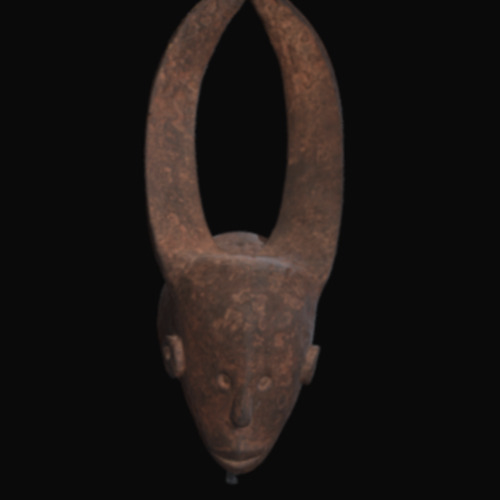
Yoruba: Complexity of Divinities and Art Forms
The Yoruba, one of the largest ethnic groups in southwestern Nigeria, have a sophisticated spiritual system with an elaborate pantheon of deities known as ‘Orisha’. Each Orisha represents specific natural elements and human endeavors, honored through various artistic expressions, including sculpture, music, dance, and theater.
Yoruba religious art is renowned for its complexity and beauty, especially evident in the ‘Ife’ terracotta and bronze sculptures. Additionally, the sacred Ifa literary corpus, containing verses full of philosophical, poetic, and spiritual insights, is a crucial part of Yoruba culture, reflecting
their intricate connection between literary and religious practices.
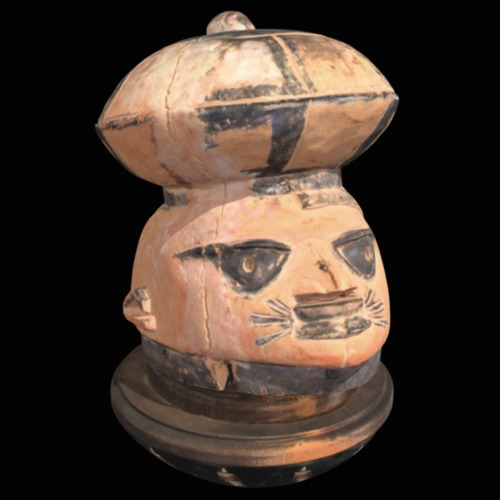
Yoruba Gelede Wood Mask (Nigeria) – Rosen Collection
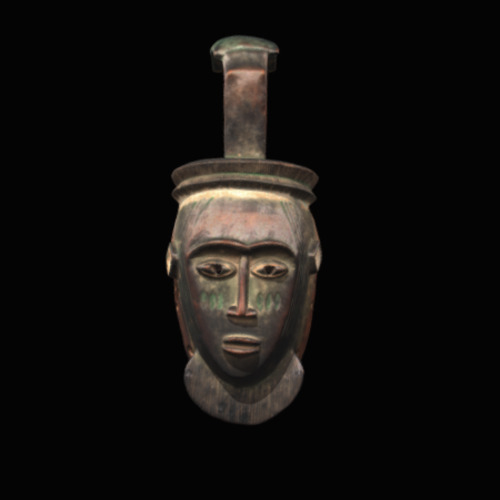
Yoruba People Ceremonial Dance Mask (Nigeria) Steinman Collection
Ogoni: Environmental Spirituality and Art
The Ogoni people in the Niger Delta region have a unique spiritual perspective deeply tied to their environment. Their ecological spirituality is vividly expressed through their masquerades and traditional dances, performed to honor ancestral spirits and nature deities. Ogoni art, characterized by natural materials and symbols, reflects their deep respect for the environment, emphasizing their commitment to environmental stewardship as a sacred duty.
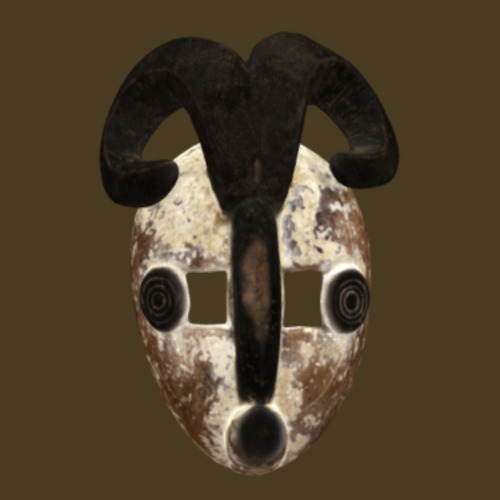
Ogoni People Zoomorphic Ceremonial Dance Mask (Nigeria) – Steinman Collection
Conclusion
The artistic expressions of the Igbo, Mama, Yoruba, and Ogoni peoples of Nigeria are profound manifestations of their spiritual and philosophical
beliefs. Art in these cultures serves as a bridge between the mundane and the divine, providing insights into how these communities understand
themselves and the world around them. Through their unique artistic practices, these Nigerian peoples articulate a diverse panorama of spiritual
landscapes, showcasing the rich cultural heritage of Africa’s most populous nation. Their art and literature not only preserve history and identity but also provide valuable insights into the universal human experience, continuing to thrive and adapt amidst modern challenges.
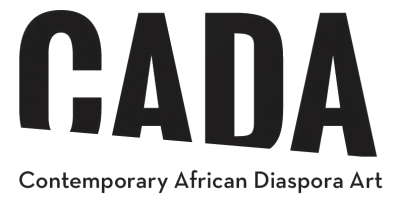
Leave A Comment